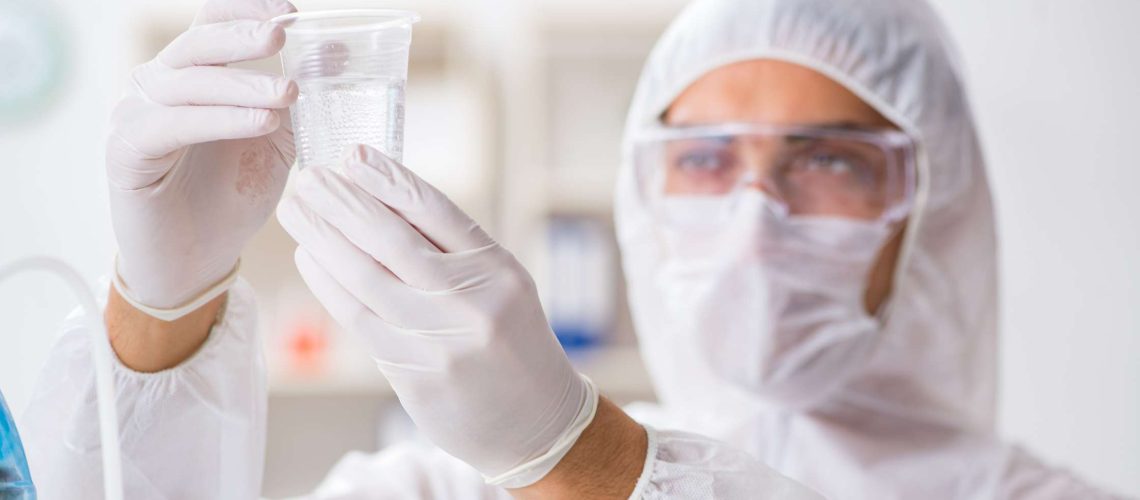If worried about well water safety, address common sources of contamination. Bacterial issues can be diagnosed by professionals and treated with disinfection. Chemical pollution stems from industrial activities and improper disposal, so test water regularly and install treatment systems. Agricultural runoff can introduce harmful substances; implement proper practices and conduct regular testing. Naturally occurring contaminants from geological formations like arsenic, iron, and manganese may require filtration systems. Improper waste disposal can pollute groundwater, so follow regulations and maintain septic systems properly. Safeguard your water supply and well-being by dealing with these sources of contamination effectively.
Bacterial Contamination
If you suspect bacterial contamination in your well water, contact SWFL Irrigation Solutions for expert assistance and efficient solutions. Bacterial contamination can pose serious health risks if left untreated. The presence of bacteria in your well water can be due to various factors such as septic system leaks, surface water runoff, or improper well construction.
SWFL Irrigation Solutions has the expertise and experience to diagnose the source of bacterial contamination in your well water accurately. Once the source is identified, they can provide you with effective solutions to eliminate the bacteria and make your water safe for consumption. Whether it requires disinfection treatments, well casing repairs, or other corrective measures, their team is equipped to handle the situation promptly and professionally.
Don’t take chances with the quality of your well water. Reach out to SWFL Irrigation Solutions today to ensure that your water is free from harmful bacteria and safe for you and your family to use.
Chemical Pollution
Chemical pollution in well water can result from various sources, potentially endangering your health and necessitating immediate action. This type of contamination occurs when harmful chemicals seep into the groundwater, often from industrial activities, improper disposal of household chemicals, or leaking underground storage tanks. Substances like pesticides, fertilizers, gasoline, and heavy metals can contaminate well water, posing serious health risks if consumed.
To address chemical pollution in your well water, it’s crucial to conduct regular water testing to identify any contaminants present. If contamination is detected, consider installing a water treatment system designed to remove specific chemicals based on the test results. Additionally, practicing proper storage and disposal of household chemicals, monitoring nearby industrial activities, and maintaining underground storage tanks can help prevent further contamination.
Agricultural Runoff
Agricultural runoff from farms can significantly impact the quality of well water, potentially introducing harmful contaminants. When pesticides, fertilizers, and animal waste are washed away by rain or irrigation, they can seep into the groundwater, polluting wells.
These contaminants pose serious health risks when consumed, leading to various illnesses and long-term health issues. To mitigate this risk, it’s crucial to implement proper agricultural practices such as utilizing controlled drainage systems, buffer strips, and cover crops to reduce runoff and filter out pollutants before they reach water sources.
Regular testing of well water for common agricultural chemicals and pathogens is also essential to ensure its safety for consumption. Additionally, promoting sustainable farming methods like organic practices and integrated pest management can help minimize the use of harmful chemicals, thus reducing the potential for contamination.
Naturally Occurring Contaminants
When dealing with well water contamination, it’s important to be aware of naturally occurring contaminants that can affect the quality of your water supply. These contaminants originate from the surrounding geological formations and can seep into the groundwater, posing risks to your well water.
One common naturally occurring contaminant is arsenic, which can lead to serious health issues if consumed in high concentrations. Additionally, iron and manganese are minerals often found in well water that, while not harmful to health, can cause unpleasant tastes, odors, and staining of fixtures.
To address naturally occurring contaminants in your well water, consider installing appropriate filtration systems or treatment methods. For instance, reverse osmosis systems can effectively remove arsenic, iron, and manganese from your water supply.
Regular testing of your well water is crucial to identify the presence of these contaminants early on and take necessary actions to ensure your water is safe for consumption. By staying informed and proactive, you can safeguard your well water against the impacts of naturally occurring contaminants.
Improper Waste Disposal
Improper waste disposal can pose significant risks to the quality of your well water supply. When waste materials aren’t disposed of properly, they can seep into the ground and contaminate the groundwater that feeds into your well. This contamination can include harmful chemicals, heavy metals, bacteria, and other pollutants that can make your water unsafe to drink.
To prevent this, it’s crucial to dispose of waste materials according to local regulations and guidelines. This includes properly disposing of household chemicals, oils, paints, pharmaceuticals, and other hazardous substances at designated collection sites. Additionally, ensure that septic systems are well-maintained and pumped regularly to prevent leakage of sewage into the groundwater.
Keep Water Clean and Free of Contaminants With Southwest Florida Service & Supply
Understanding the common sources of well water contamination is crucial for ensuring the safety and quality of your water supply. At Southwest Florida Service & Supply, we are committed to helping you identify and address these issues effectively. From natural contaminants like bacteria and nitrates to man-made pollutants such as pesticides and industrial chemicals, well water can be compromised in various ways. Regular testing and proper maintenance are essential steps in mitigating these risks and ensuring clean, safe water for your household.
Don’t compromise on the safety of your water—contact us today to learn more about our services. Call us at (239) 657-2429 and ensure your well water is safe and clean for your family.

